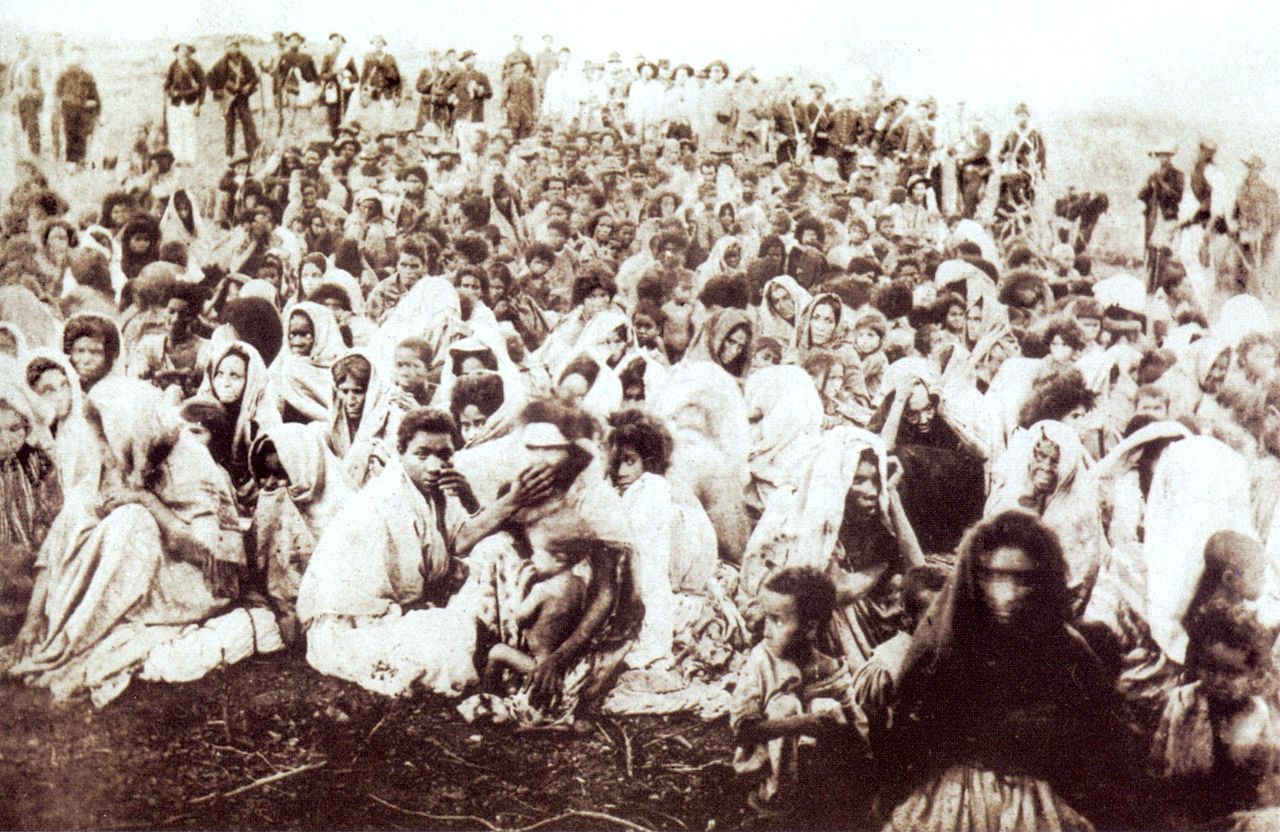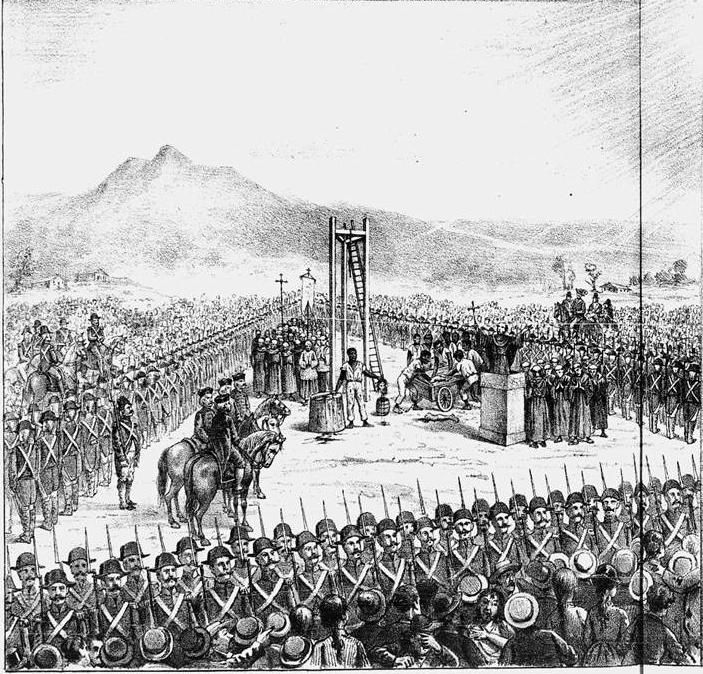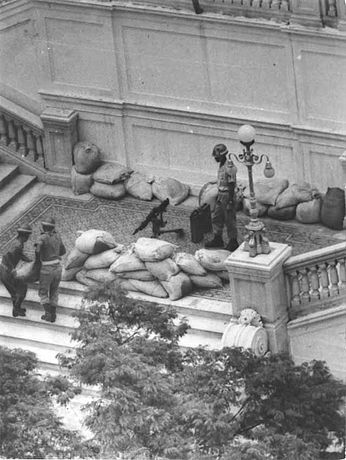
Rio de Janiero, September 1 - September 21
Some thoughts on meeting with historian, Professor José Hónorio Rodrigues:

Some pointers from meeting with naval historian, Max Justo Guedes:
“Brazil's big problem is that we were once a slave country, our people were in the main slaves. Difficult to pass from slave to free-thinking people. Influence, too, of moral ideas of the degregados who wanted to become as rich as possible and return to Portugal. Indians had a different outlook on property, sex etc., status not important. Rich today act much the same way as they did in colonial times. They don't pay attention to laws because they think and often know they can buy their way out. The poor simply don't take any notice of laws.”
“Goulart was a man of mean intelligence surrounded by people whose main objective was to enrich themselves, to acquire more property, cars etc. Same problem today. Generals not used to anything find themselves in Brasilia with fine cars, houses and a lifestyle never possible nor accustomed to in army. One of the main preoccupations during the time they are in Brasília is how they're going to maintain this afterwards. So they get involved in all sorts of business deals, many shady. In 1964, there was more corruption than communism.”
“Disagree with people who see all priests as communists. It is not so - At Santa Barbara (country town near Max's family property), there are kids who go for a week eating nothing but mangos. Mayor does nothing to help the poor. Only person who does a thing to help them is the priest.”

The argument and consensus reached with Antonietta last night, a glorious two hour debate, brought me closer to clarity of my ideas about Brazil and cleared any doubts that may have arisen about her feelings of true Brazilian nationalism. What she doesn't realize is that the hours of dialogue forced me toward a truly independent understanding of Brazil and its problems, one divorced from cliches of my own and from hers, e.g. “dominant ideology” (or my misreading of this.) At last I feel for Brazil in same way I feel for South Africa, although I accept the caution that no matter how deep or perceptive that feeling, I am not a Brazilian.
*When she speaks of dominant ideology, she doesn't differentiate between East or West; she speaks of any outside ideology that attempts directly or indirectly to impose itself on Brazil (or any other country for that matter.) She is concerned about Brazil's lack of independence in sense of falling prey to the East-West conflict and, more important, in the imposition of outside ideology be it political, folkloric, lifestyle on Brazil.
It's the much spoken of “Brazilian solution” but expounded with brilliance and depth and sincerity. It is also, one sadly realizes, the approach of a true idealist for that world is such that nations cannot exist in vacuo, but her ideas are, of all I've heard about Brazil, the best. Some of her points and my thoughts on them:

One wonders, with the military marching the nation deeper into the U.S. orbit, with its chronic dependencies as evidenced by the world's biggest foreign debt - whether Brazil is perhaps further away than ever from “independence?” As noted last night, I see nothing wrong with multinational development but everything wrong with multinational exploitation. As base, take classic sugar plantation: the great landlords controlling vast estates: project the same image on a world basis and the country becomes a “latifundia” with the coronels and fazendeiros be they in São Paulo, New York, Germany continuing the same process: vast multinational latifundia built on the tradition of centuries of intensive “farming” of Brazil. Their activities, of course, may have nothing to do with farming, only in figurative sense.
Lincoln Gordon's “fateful blow” may have been just that for in postponing the inevitable “reform” it added fuel to the disenchantment of the masses. It made their situation “16 years” worse and when the time comes for them or their sons to flex their muscles they could be that much more intractable, that much more against North America which they may come to see, with justification, as the “block” to their advance.
Oh, the parallels with South Africa! The blacks striving for freedom and wanting desperately not be to aligned with anyone but driven to the East-bloc through the West's preoccupation with the establishment. The building up, decade by decade, of frustrations. The slow, agonizing struggle to free themselves. Small wonder Antonietta sees Brazil as the “South Africa of South America," not simply on a racial basis which though bearing some comparison is weak but on its overall positioning, its people's striving for independence and their being so often frustrated by outside interests.
To speak of education as a key is correct, but it must include broad, adult-oriented education, not in the Three R's which is too late for many but in developing a sense of existence freed from a “slave mentality,” from the paternalistic hold on millions. — This is essentially Antonietta's program, with which I still find fault believing there has to be grass roots tutelage or, ultimately, the product will wither and die.
Again, you have to ask yourself whether as happened in South Africa, there's a deliberate attempt to hold back the education of masses, a fear of giving them knowledge (and the power that will threaten the establishment). One has only to consider the Verwoerdian speeches and polices, Verwoerd's talk of blacks being hewers of wood and drawers of water etc, and a similar possibility arises. It would be very difficult to get a Brazilian to admit this directly and there are probably no written statements but there is a tradition of “keeping the peasants in their place;” of accepting the souls of the sertão as lost and hopeless. Were you to develop this line of thought, you'd come to see why there is a real need to keep the “illiterate” 45 per cent away from the ballot box, why there is a fear of priests who go about informing the backlanders...
On '64 to '81: Today's opposition is older, wiser, more cautions, and by experience more prepared. Again, consider the phases of the liberation struggle in South Africa, the late 50s belief in a hasty revolution that would overthrow the regime, the total failure of this, the two and half decades of regrouping and the split (in sense of some genuinely working with regime for reform,) the preparation for the final assault with knowledge that it's going to take a long time but that ultimately, the vast gap is going to be closed.
And, all, as always returns to Cry, the Beloved Brazil.